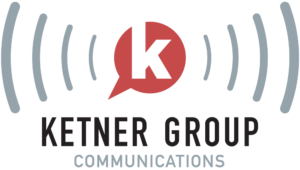In light of this week’s events surrounding Facebook and Cambridge Analytica, we wanted to repost the following guidance from PRSA 2018 National Chair Anthony D’Angelo, APR, Fellow PRSA. Please find the email that was distributed from PRSA earlier this week, below.
The current headlines about Facebook and Cambridge Analytica, including lax data policies and Facebook CEO Mark Zuckerberg’s initial silence on the ethical and legislative controversy, prompted PRSA 2018 National Chair Anthony D’Angelo, APR, Fellow PRSA, to address how values and principles from PRSA’s Code of Ethics could help Facebook to get ahead, and stay ahead, of ongoing crisis developments.
What’s worse than Facebook’s data breach?
Facebook executives have learned, too slowly, that a trust breach is profoundly more damaging than a data breach. The elegantly simple remedies for the former are spelled out in the Public Relations Society of America’s (PRSA) Code of Ethics. Warning: Implementing them can require extraordinary courage, a thick skin and hard, sustained work. Not implementing them will lead to further erosion of trust and market capitalization, and a commensurate increase in government hearings and industry regulation.
Mark Zuckerberg, after a glacial delay, responded yesterday to the public outcry for information via “Anderson Cooper 360” and various other statements. An apology is an important start, but it’s reactive. To get ahead of this crisis, here are applicable values and principles from the PRSA Code of Ethics that Facebook should attend to:
Honesty and fairness, which are required for trust to be enabled among stakeholders, and to maintain the integrity of relationships with the public, the media and government officials. This is essential for informed decision-making in a democratic society. In short, come clean and play fair. If there is unpleasant news about what has happened, Mark Zuckerberg and Sheryl Sandberg, share it completely and quickly for Facebook’s benefit as well as the public’s. You do not want it to come from other sources, as has been happening since 2015 with this matter.
Free flow of information, which trusted organizations consistently advance. Don’t deflect, obfuscate or dissemble. Don’t have attorneys take over communications, which inherently sends a suspicious message.
Act promptly to correct erroneous communications. Crises can have huge magnitude as one-time events, or they can have protracted, steady-drip effects. Facebook’s Cambridge Analytica scandal has both. Yesterday, Zuckerberg finally answered the urgent question, “Where are you on this?” Henceforth, he and other Facebook leaders must spell out what they’re doing to fix every aspect of every relevant problem and report steadily on progress.
Disclosure of information, to build trust with the public by revealing all information needed for responsible decision-making. After reports this past weekend by The New York Times and the Observer of London, the deputy general counsel at Facebook said, “Everyone involved gave their consent.” Can informed consent happen when millions of Facebook users are seemingly expected, for their own protection, to turn off app settings that they aren’t aware exist?
Reveal the sponsors for causes and interests represented. The information consumer has a right to know whether a message is sponsored and who is sponsoring it.
Safeguarding confidences, to provide appropriate protection of confidential and private information. It is not unethical to keep proprietary information confidential; any company must do so to protect intellectual property and strategies to compete in a robust business environment. However, that information cannot be safeguarded if it harms the interests of the nation or society.
Conflicts of interest must be avoided or ended to ensure one’s professional or personal interests are not in conflict with society’s interests. This requires transparency, and transparency requires speed and consistency to enable trust.
If you can’t figure out what the product is in a given digital or social media app, then you are the product — your data, your attention, your connection to other users. Thousands of users didn’t realize that when they downloaded an app as seemingly innocuous as a personality quiz, it scraped information from not only their Facebook profiles, but from their friends’ profiles as well. Fifty million people were affected, and they don’t care if the cause was Facebook’s policies, its oversight of developers or the actions of a rogue developer. Facebook doesn’t get to assign blame, its customers do. So Facebook is obligated to deliver the facts and let customers decide for themselves if the problem is fixed.
This is a tough situation, and it’s easy for anyone to play Monday morning quarterback. Facebook’s leaders are highly intelligent, and I’ll bet that they’ve been given good PR counsel — but heretofore Facebook’s actions do not reflect best practices.
Therefore, I’d like to offer free, albeit unsolicited advice. Engage public relations professionals, whether on your staff or external, that know PRSA’s Code of Ethics chapter and verse. It will help you and the publics you serve. In fact, I’m willing to assemble a team of PRSA member experts who would be willing to counsel you without fee because the stakes in this far-reaching crisis are astoundingly high.
Anthony D’Angelo, APR, Fellow PRSA
2018 National Chair, PRSA
